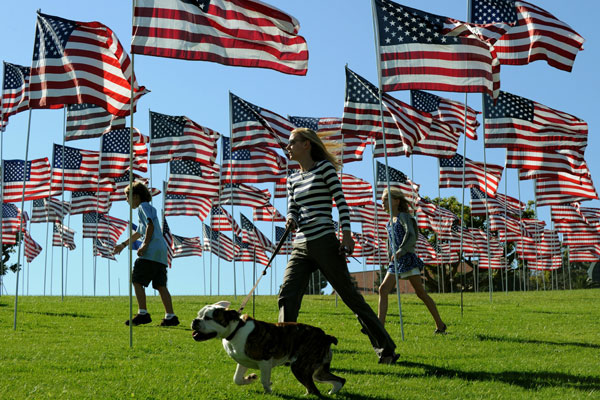
WASHINGTON — For nearly a century, Democrats have honored two men as the founders of their party: Thomas Jefferson, for his visionary expression of the concept of equality, and Andrew Jackson, for his populist spirit and elevation of the common man.
Political candidates and activists across the country have flocked to annual Jefferson-Jackson Day dinners, where speeches are given, money is raised, and the party celebrates its past and its future.
But these time-honored rituals are colliding with a modern Democratic Party more energized by a desire for racial and gender inclusion than reverence for history. And state by state, Democratic activists are removing the names of Jefferson and Jackson from party gatherings, saying the two men no longer represent what it means to be a Democrat.
The Iowa Democratic Party became the latest to do so last weekend, joining Georgia, Connecticut and Missouri. At least five other states are considering the same change since the massacre in June at an African-American church in Charleston, S.C.
“The vote today confirms that our party believes it is important to change the name of the dinner to align with the values of our modern-day Democratic Party: inclusiveness, diversity and equality,” said Andy McGuire, the Iowa Democratic chairwoman.
For all the attention this summer to the fight over the Confederate battle flag, the less noticed moves by Democratic parties to remove Jefferson and Jackson from their official identity underscore one of the most consequential trends of American politics: Democrats’ shift from a union-powered party organized primarily around economic solidarity to one shaped by racial and sexual identity.
The parallel forces of class and identity, at times in tension and at times in unison, have defined the Democratic Party in recent decades. But the country’s changing demographics, the diverse nature of President Obama’s coalition and the animating energy of the Black Lives Matter movement have also thrust fundamental questions about race, gender and economic equality to the center of the Democratic presidential race.
The shift can be seen as Senator Bernie Sanders of Vermont, a Democratic socialist whose campaign is shaped by class-oriented progressive politics, has been confronted by black activists demanding answers for how he would address inequities they believe are derived entirely from racial discrimination. Mr. Sanders, who is 73, is trying to adjust to a changing party, sometimes uncomfortably. He is now speaking more explicitly about policing, has hired an African-American spokeswoman and has added more diversity on stage at his heavily attended rallies.
The move to erase Jefferson and Jackson is not being welcomed by all Democrats. Some of them fear the party loses what has long been its unifying philosophy by removing the names of founders, whose virtues and flaws illuminated the way forward. And they worry that as the labor movement declines, cultural liberalism is beginning to eclipse a fundamental message of economic equality that brought about some of the party’s most important achievements, from the New Deal to Medicaid.






